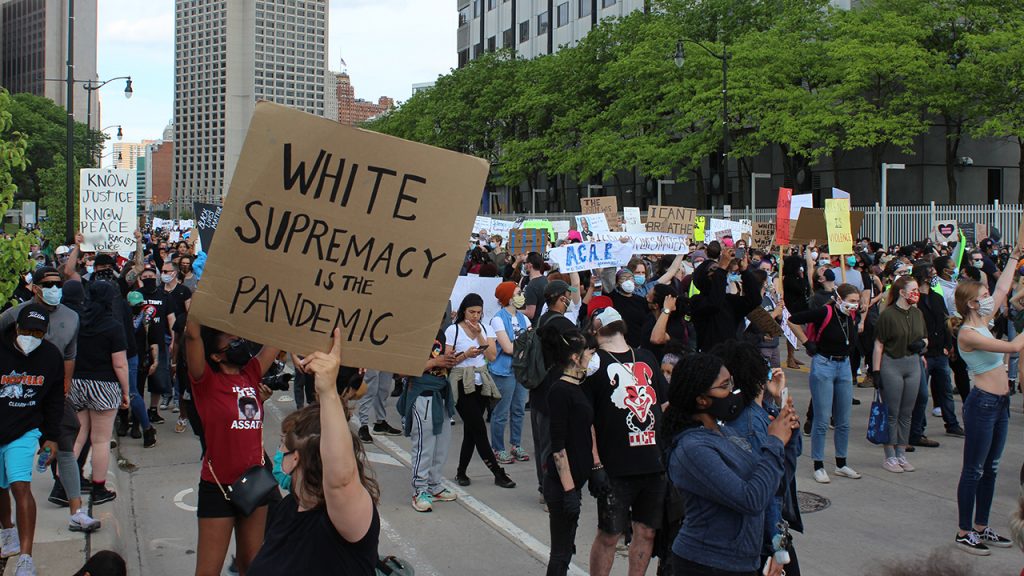White People: Learn How To Become Better Allies
On Detroit Today, a professor asks white allies to explore one’s own privilege and implicit bias as a first step in solidarity.

While interracial solidarity is crucial to progress, there’s a nuance and tradition of white supremacy so interwoven into the fabric of this country that in moments like the current one, what may have started as an act of solidarity can devolve into something merely performative and ultimately more damaging than helpful.
“If there’s no action accompanying your belief system, then what’s the point? Every white person needs to do the work of interrogating their own beliefs.” — Apryl Williams, University of Michigan
On Detroit Today, we look at how white allies can express solidarity without centering the conversations on themselves.
Listen: Steps to for white allies to take to support victims of racial hostility and violence.
Guest
Apryl Williams, an Assistant Professor at the University of Michigan, says performative ally-ship, or public and private displays of solidarity that don’t actually support people of color, has become a real concern in the current movement. Williams implores white people to interrogate their own whiteness by really thinking about their upbringing and implicit bias .
“If there’s no action accompanying your belief system, then what’s the point? Every white person needs to do the work of interrogating their own beliefs,” says Williams.
She warns that this solidarity doesn’t mean white people should be centering themselves in the movement. Instead, Williams says a good ally is someone who tries to amplify African American voices, not co-opt a movement.
Trusted, accurate, up-to-date
WDET is here to keep you informed on essential information, news and resources related to COVID-19.
This is a stressful, insecure time for many. So it’s more important than ever for you, our listeners and readers, who are able to donate to keep supporting WDET’s mission. Please make a gift today.
